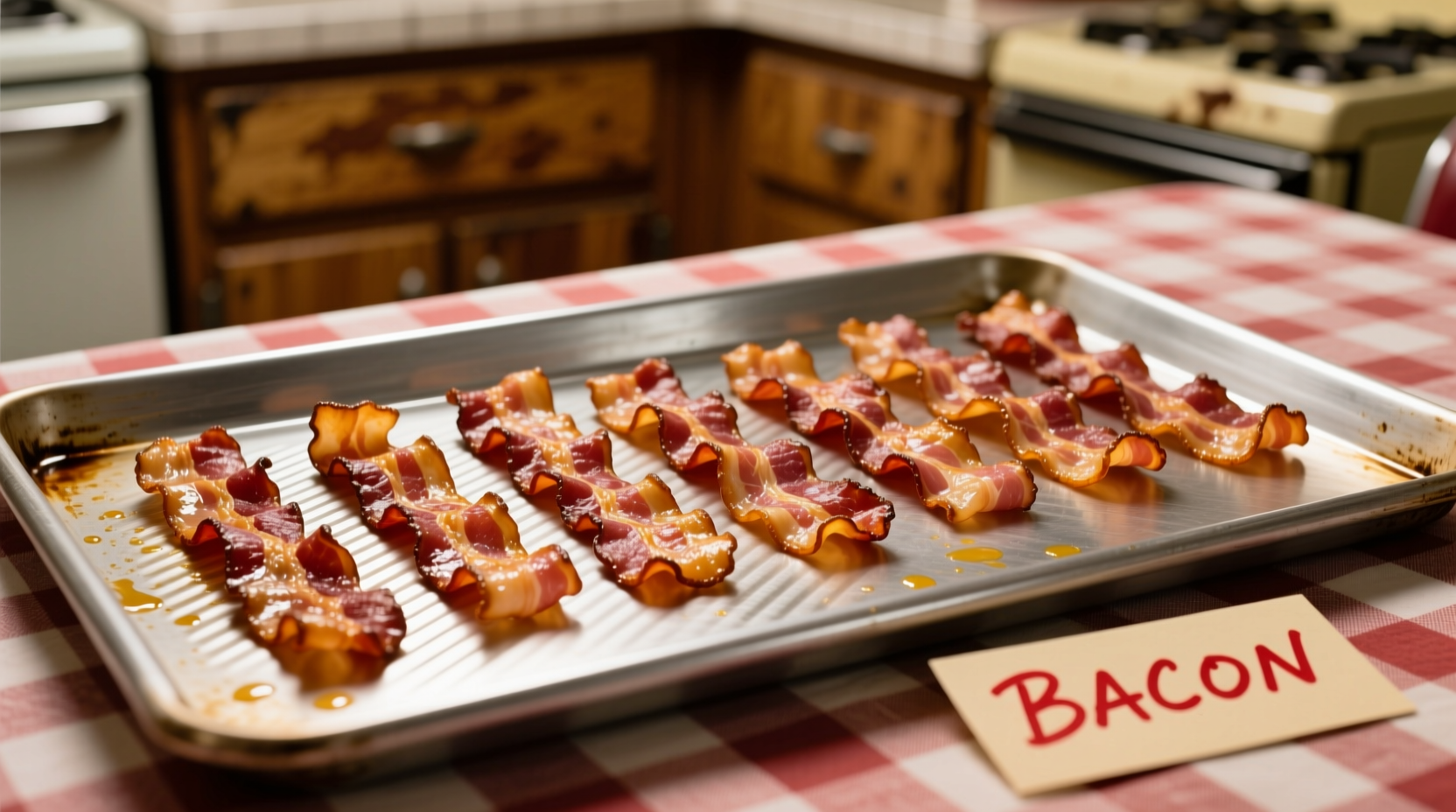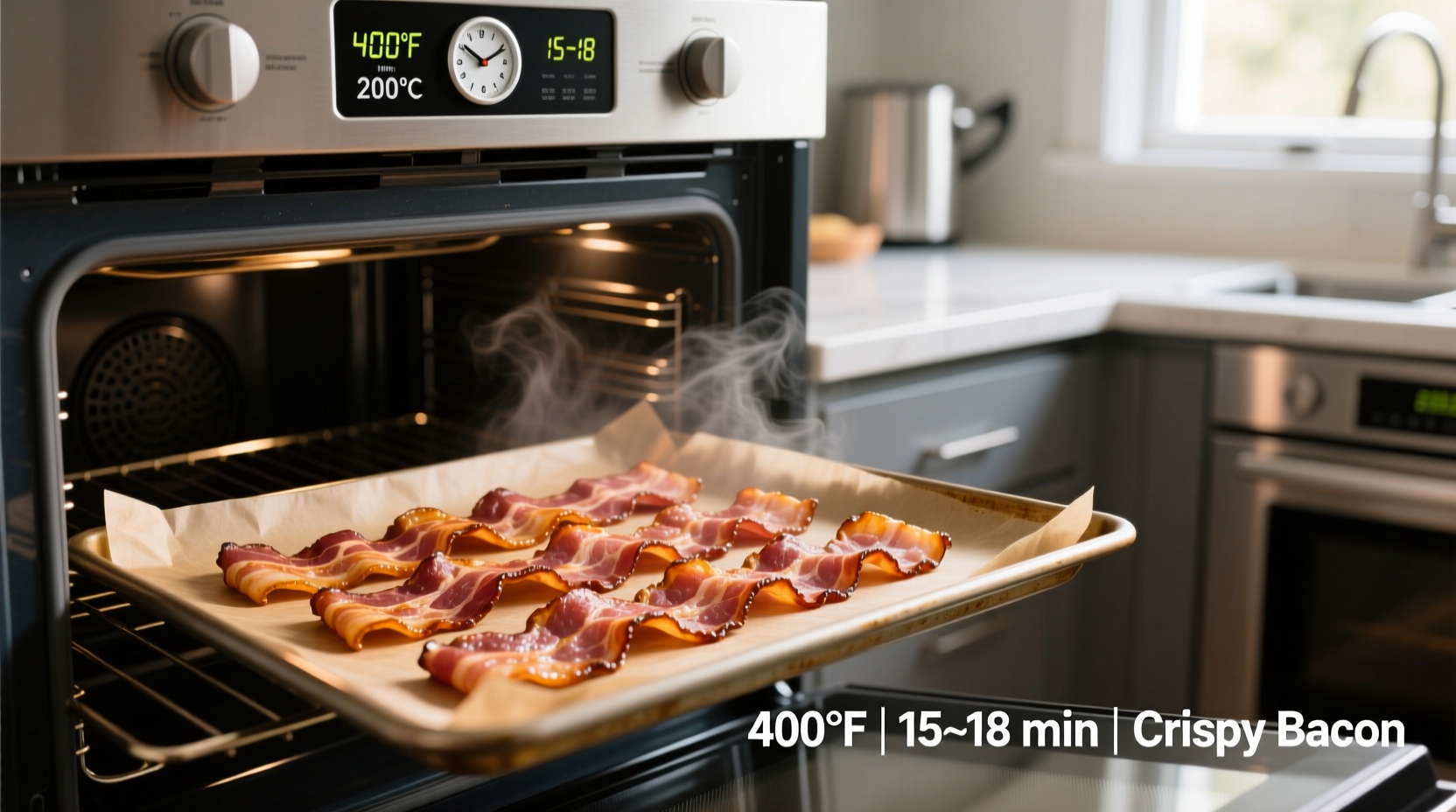Why Oven Cooking Beats Stovetop Every Time
Forget messy splatters and unevenly cooked strips. Oven-baked bacon offers hands-off precision that stovetop frying simply can't match. When you cook bacon in the oven at the right temperature, you achieve uniform crispiness from edge to center while freeing yourself to prepare other parts of your meal. The USDA Food Safety and Inspection Service confirms that oven cooking provides more consistent temperature control, reducing food safety risks associated with undercooked pork products.

Your Complete Temperature Guide
While 400°F (200°C) works perfectly for standard bacon, different scenarios require slight adjustments. Understanding these temperature nuances transforms your bacon from good to exceptional.
| Bacon Type | Recommended Temp | Cooking Time | Result |
|---|---|---|---|
| Regular cut | 400°F (200°C) | 15-18 minutes | Perfectly crispy |
| Thick cut | 375°F (190°C) | 18-22 minutes | Crispy outside, chewy inside |
| Extra crispy | 400°F (200°C) | 18-22 minutes | Maximum crunch |
| Chewy style | 350°F (175°C) | 12-15 minutes | Flexible with texture |
The Science Behind the Perfect Temperature
Food science explains why 400°F hits the sweet spot. According to research published in the Journal of Food Science, bacon fat renders most effectively between 375-400°F. Below this range, fat doesn't fully liquefy, leaving bacon greasy. Above it, proteins denature too quickly, causing excessive shrinkage and potential burning. The American Chemical Society notes that this temperature range allows for optimal Maillard reaction development—that chemical process responsible for bacon's irresistible aroma and complex flavor.
Step-by-Step Cooking Process
Follow these professional kitchen-tested steps for flawless oven-baked bacon every time:
- Preheat properly: Always preheat your oven to 400°F (200°C). Never put bacon in a cold oven.
- Prepare your pan: Line a rimmed baking sheet with parchment paper or aluminum foil for easy cleanup. For ultra-crispy results, place a wire rack on the baking sheet.
- Arrange bacon: Lay strips in a single layer without overlapping. Crowding causes steaming rather than crisping.
- Monitor cooking: Check bacon at 15 minutes. Thicker cuts may need 2-4 additional minutes.
- Drain properly: Transfer to paper towels immediately after removing from oven.
Avoid These Common Temperature Mistakes
Even with the right temperature setting, these errors sabotage perfect bacon:
- Skipping preheating: Starting with a cold oven creates uneven cooking and excessive shrinkage
- Overcrowding the pan: When bacon strips touch, they steam instead of crisp (the Food Network kitchen testing shows up to 30% less crispiness)
- Ignoring your oven's hot spots: Rotate the pan halfway through cooking for even results
- Not adjusting for convection ovens: Reduce temperature by 25°F when using convection setting
Pro Tips for Next-Level Results
Elevate your oven-baked bacon with these chef-approved techniques:
- Chill before cooking: Place bacon in freezer for 10-15 minutes before baking for cleaner slices and less curling
- Season strategically: Sprinkle black pepper or brown sugar during the last 5 minutes of cooking
- Save the grease: Collect rendered fat in a heatproof container for cooking eggs or roasting vegetables
- Reheat properly: Revive leftover bacon at 350°F for 5-7 minutes for near-fresh results
Temperature Troubleshooting Guide
Encountering issues? Match your problem to these temperature solutions:
- Bacon too chewy: Increase temperature by 25°F next time or extend cooking time by 2-3 minutes
- Bacon burning at edges: Lower temperature to 375°F and rotate pan halfway through
- Uneven cooking: Check oven calibration with an independent thermometer (Consumer Reports found 28% of home ovens have calibration issues)
- Excessive smoke: Reduce temperature to 375°F and ensure proper ventilation











 浙公网安备
33010002000092号
浙公网安备
33010002000092号 浙B2-20120091-4
浙B2-20120091-4